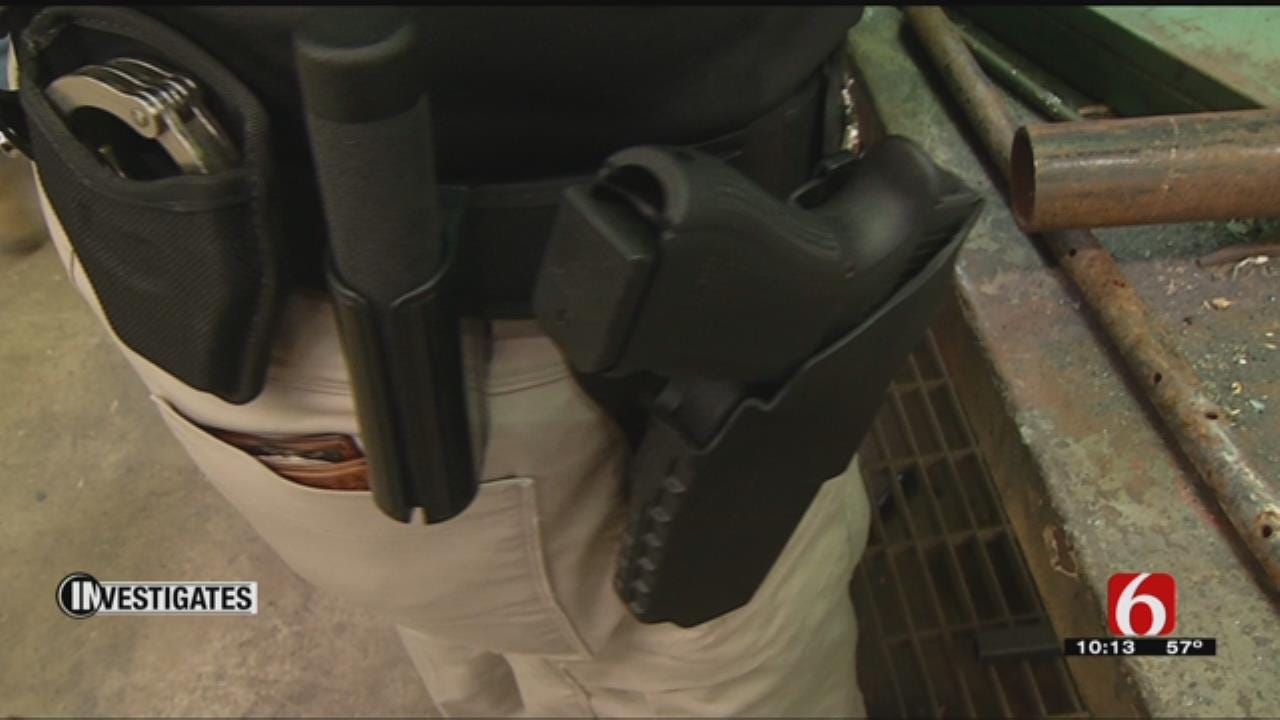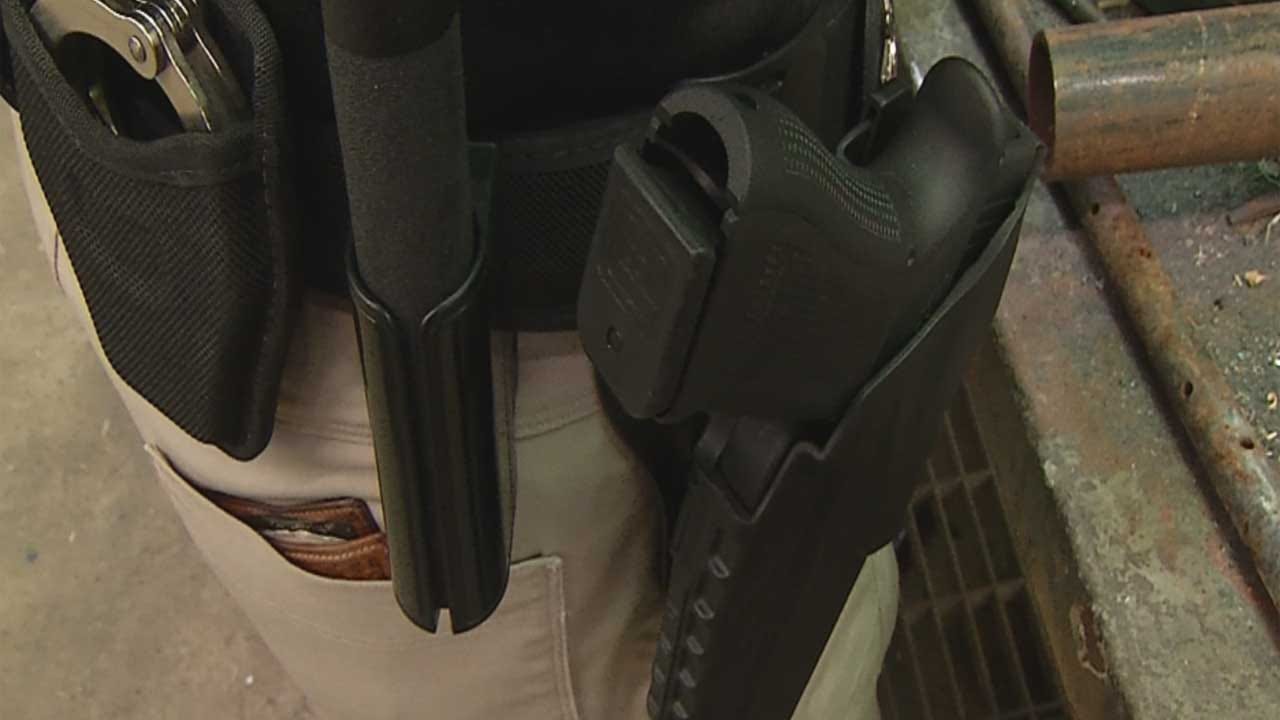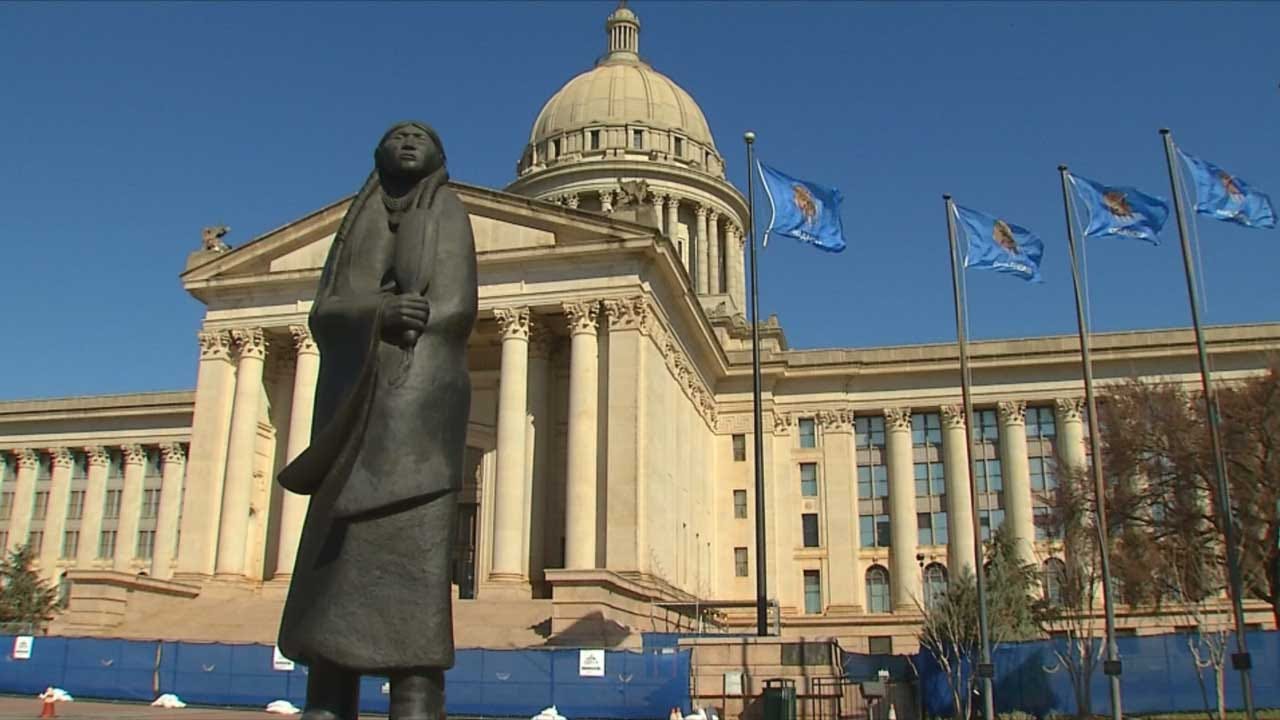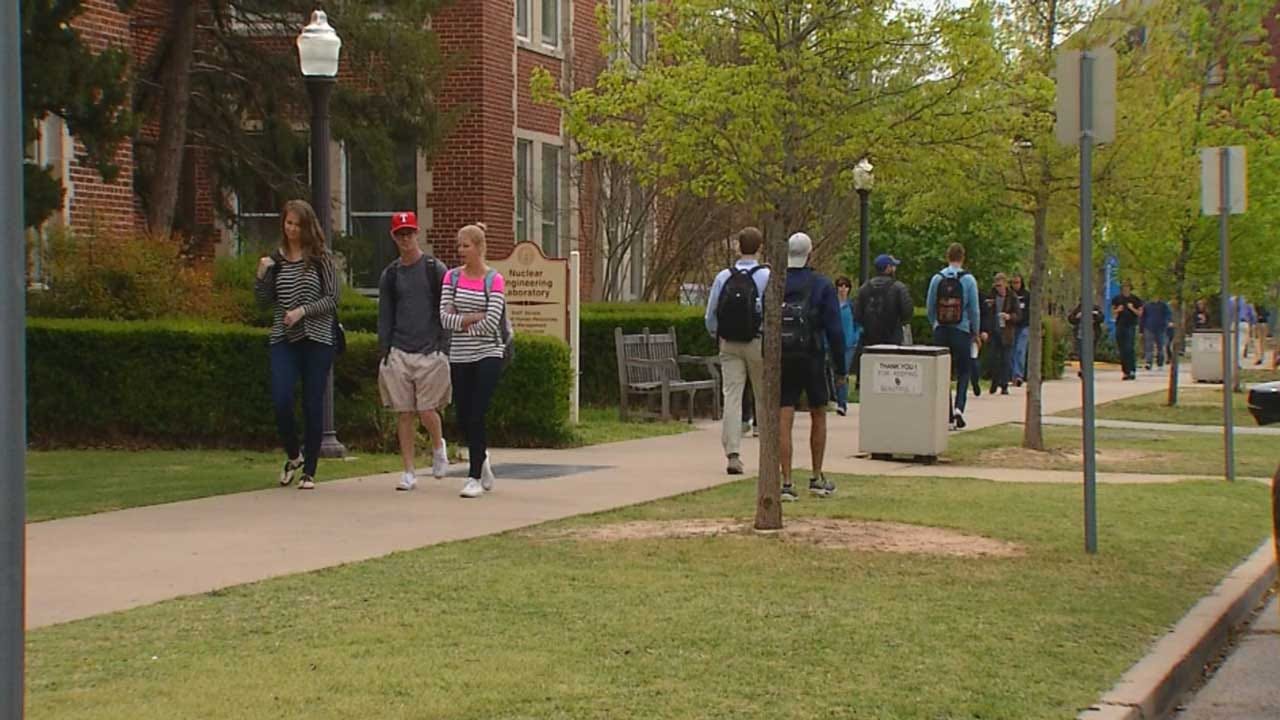6 Investigates: Schools Arming Teachers To Protect Students
<p>A gun-free zone is a target, that's the rationale behind a law to make our schools safer. It was approved by state lawmakers last year.</p>Tuesday, November 22nd 2016, 11:16 pm
A gun-free zone is a target, that's the rationale behind a law to make our schools safer. It was approved by state lawmakers last year.
It gives school districts the ability to authorize the carrying of a handgun onto school property by specifically designated, and properly trained, school personnel.
And now, a year and a half later, we have armed teachers in some classrooms.
Not long after the governor signed House Bill 2014 into law last year, Todd Hallman, an agriculture education teacher in Drumright, had a talk with some of his friends at the police department about taking on a new role at school.
"They encouraged me, they said that would be great," Hallman recalled. "They said, 'Yeah, it would be really nice to have an officer in the schools.'"
The new law, approved overwhelmingly by lawmakers despite significant public concern, gave school districts the option of designating certain school personnel to carry a handgun on school grounds, and even in the classroom.
Hallman, himself a graduate of Drumright schools, went to Superintendent Robbie Dorsey and said he would like to volunteer to be an armed teacher for the district, if the school board would give its blessing.
"Honestly, I didn't know whether it would fly or not," said Hallman. "I mean, I really figured there would be mixed emotions throughout the school board members."
Supporters of the original legislation felt that students would be safer, if there were properly trained, armed staff in their schools. Rep. Jeff Coody, R-Grandfield, sponsored the bill, arguing that "a gun-free zone is a target" and that too many schools cannot afford to employ a full-time officer.
Still, many educators campaigned against the legislation, saying that teachers have enough responsibility already and should not have to also become security guards. What's more, many said, firearms and young children are a risky combination, regardless of who is in charge of the weapon.
Hallman knew, as emotionally charged as the issue is, his offer might get shot down.
"And I was actually very shocked, when Mr. Dorsey came to me the day after the school board meeting and said there was no hesitation -- they were all for that," said Hallman.
Having cleared that hurdle, Hallman had to go through required CLEET training, as the law requires that the school employee either "possess a valid armed security guard license ... or hold a valid reserve peace officer certification."
Hallman is now a reserve officer with the Drumright Police Department.
With the support of local law enforcement and school administrators, Hallman began wearing his gun to work this fall, and wondered how it would go over with his students.
"I figured I would get lots of questions when school started, but, to be totally honest, I think I've had two students ask me about wearing a gun," Hallman explained.
He said many more have told him tell him they're glad he's armed -- that it's made them feel safer.
"It's peace of mind, I think, more than anything," Hallman stated.
Dorsey said, personally, he never questioned the idea of adding extra security by arming teachers.
"Anything we can do to protect kids," Dorsey said. "I'm going to be for."
Dorsey said the decision certainly should not be seen as a poor reflection on the professionalism of the local police. He said this just made sense, especially when active shooter scenarios are so common.
"To say that it's not gonna happen is just not realistic," said Dorsey. "I mean, it can, and it could happen this afternoon, so, I'm wanting to be prepared for it."
According to the FBI, from 2000 through 2015, there were 45 active shooter incidents at schools and colleges across the country. None of those were in Oklahoma, but that doesn't mean there haven't been some scares.
The state Department of Education reports there were 230 firearm incidents at public schools from 2008 through 2015, and eight of those resulted in physical injury.
To prepare for the possibility of an active shooter incident, all schools are required to conduct intruder drills four times a year.
"This is an intruder drill, intruder in the building," declared a voice over the loudspeaker at Northwest Tech Center in Fairview last month.
When administrators at Northwest Tech Center run their intruder drill, they have help from the Major County Sheriff's Office. In fact, the sheriff and his deputies are a regular presence at the school, since they have an office in the school.
"They're here periodically throughout the day, so we think we're taking reasonable precautions and providing a safe environment for students and staff," said Northwest Tech Center Superintendent Gerald Harris.
Harris is one those who does not believe arming teachers is a good way to protect students, and so he's grateful -- thanks to the proximity of the sheriff -- that his district didn't seriously discuss adopting the new gun policy.
"For us, the advantages are not worth the risk involved," said Harris.
6 Investigates wanted to know how many districts feel the same way and have not adopted the new handgun policy and, conversely, how many have taken advantage of the new law. Following inquiries with the state Department of Education and other education associations, it became clear that this is not being tracked statewide.
In late June, emails were sent to more than 500 superintendents of local school districts across the state, asking that they respond and indicate whether they have adopted a handgun policy or not.
As of Oct. 31, 2016, 327 districts had responded to the email. The overwhelming majority, 290, or 89 percent, wrote that they had not adopted the new gun policy; 16 districts, or 5 percent, indicated they were currently considering adoption of the new policy; 21 districts, or 6 percent, said that they had adopted a policy allowing a teacher to be armed in the classroom.
Below this story is a PDF with the full list of responses.
The survey did not ask for an explanation of the decision to adopt or not adopt the policy, but, based on a sampling of the responses, it's important to keep in mind that each district has its own unique circumstances. Some districts have local police situated close to the schools, while others are quite isolated; some schools are able to employ full-time school resource officers nearby, while others have had to cut SRO positions due to budget cuts.
Given the varying conditions, from one district to another, even those philosophically opposed to the idea of arming teachers are glad the law puts this decision in local hands.
"They know their community, they know the expectation, they know where their law enforcement are, and I'm sure that they do not make these decisions lightly," said Alicia Priest, OEA president.
In Drumright, where Todd Hallman has taken on a responsibility most teachers would just assume not have, he relishes the opportunity to wear two hats.
"I'm here to teach the kids, and I'm here to protect them," Hallman stated, in a matter of fact tone. "That's what it boils down to -- if it comes to that."
And if it doesn't come to that, Hallman said, he's just a teacher with a gun.
More Like This
November 22nd, 2016
June 9th, 2016
Top Headlines
October 24th, 2024
October 24th, 2024










